Sustainable dining starts at home: WWF-Philippines introduces the Savour Planet workshop series designed to empower and educate Filipino consumers
March 2018
Together with The Cravings Group, Center for Culinary Arts Manila, WhenInManila.com, Chef James Torres, and Chef Robby Goco, World Wide Fund for Nature (WWF) Philippines launched its flagship workshop series for Filipino diners at Cravings, Quezon City last 17 March 2018.
“Hindi na baleng sobra, basta hindi kulang.”
Filipinos take food seriously. Inherently tied to our history, the Philippines has one of the most colorful and diverse cuisines in Southeast Asia. Growing up, Filipinos learned how to love food in its entirety – both the process of producing it and the process of consuming it. Filipinos treat eating as a social activity – we love cooking for other people. Furthermore, whenever we cook, we make sure we cook extra, in case someone else wants to join the feast. We owe this practice to the Filipino’s hospitable nature. As the saying above goes, “better to have extra than to not have enough”.
The saying does not only apply when eating at home, but also when Filipinos’ dine out with family and friends. We always order extra food – for the satisfaction of someone’s bigger appetite and to make the people feel more welcome and entertained. While this practice also displays Filipino generosity, it contributes to one of the pressing problems we are experiencing in the country: food waste. This problem persists each time we discard not just the food on our plate, but also the resources making the food we consume.
Recognizing that change does not just come from the top, but mostly from the demand being created at the bottom, WWF-Philippines, through its pioneer project on sustainable consumption and production, The Sustainable Diner: A Key Ingredient for Sustainable Tourism, has launched a workshop series entitled Savour Planet. This aims to empower and educate Filipino diners: partners from the media, the academe; and fellow non-government organizations, on the importance of sustainable food systems and sustainable dining. The series was launched through its first leg, Cooking with a Purpose, where Filipino diners were invited to participate in a live simulation and an actual cooking of their own food using local ingredients sourced from local markets, which enabled them to link the concept of sustainable dining back to where Filipinos first learn many important lessons about life: their home.
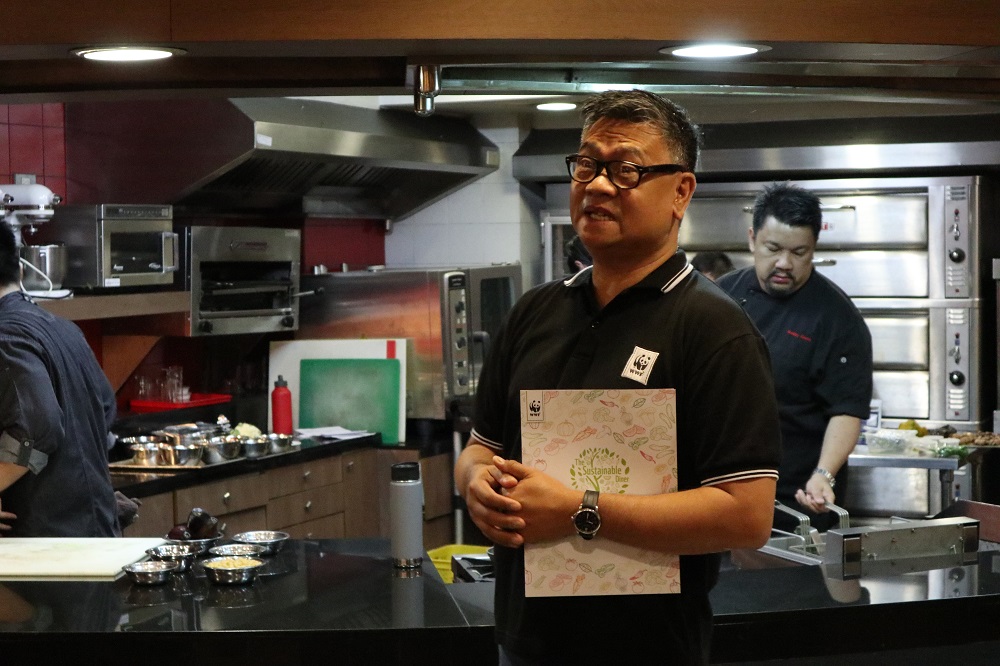
Joel Palma, President and CEO of WWF-Philippines, opened the workshop by discussing the importance of promoting sustainable dining in the context of agriculture and sustainable food systems, mentioning the fact that the Philippines imports rice to support a growing population, and stressing the importance of food waste in not only lessening importation, but also making sure that we are able to properly use our resources in order to feed our people. “We have to be conscious of our dining choices since we are running on a deficit in terms of our resources,” says Palma. “Whenever we eat, we need to think of our future and that of our children. We need to ensure that we are leaving them with a living planet.”
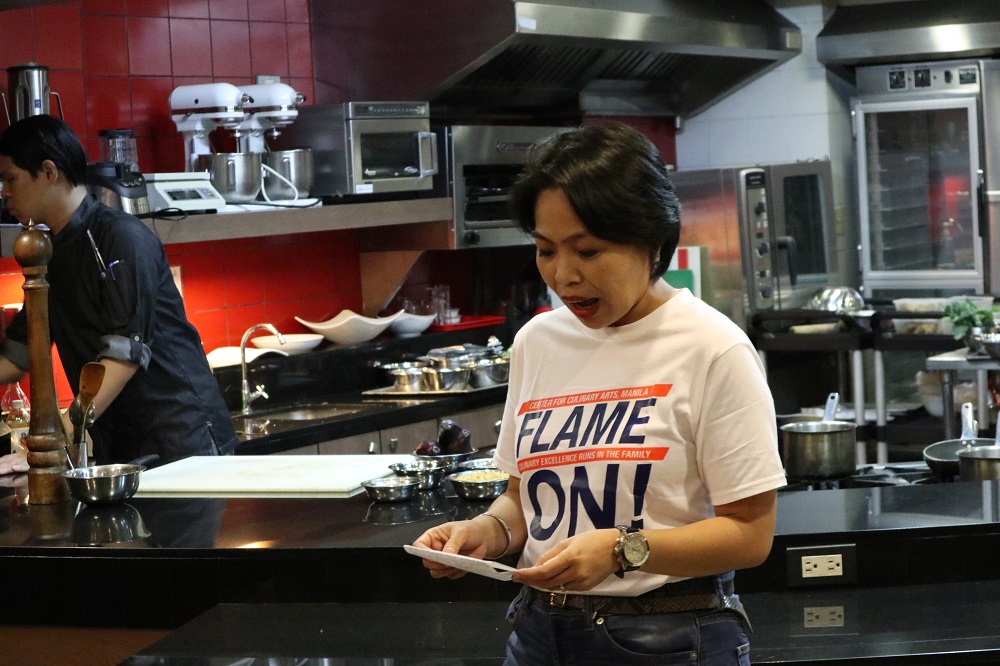
This was followed by welcoming remarks from Ms. Joan Optina, Marketing Manager of CCA Manila, a culinary and academic institute known for promoting Green Chefmanship and integrating sustainability in their curriculum. “Food sustainability is in the core of everything we do,” says Optina. “The values that we are instilling in students are well-rooted in that of our founder’s, Ms. Annie Guerrero, who wants to equip the future generation with the right skills, knowledge, and of course, heart, to tackle global culinary issues and challenges with the environment in mind.”
Ms. Melody Melo-Rijk, Project Manager of The Sustainable Diner and Sustainable Consumption and Production in the Philippines, reiterated the need to change Filipino mindsets when it comes to something as simple as dining in order to deliver more impact that helps ensure food security in the country. “The main purpose of Savour Planet is to empower Filipino diners and enrich their knowledge on food sustainability,” says Melo-Rijk. “We want to somehow tweak the thinking that we have a lot of food. With all these new restaurants popping up in the metro, it is hard not to think that this is the truth. But as our president has mentioned, we are running on a deficit when it comes to our resources. That is why we need to make sustainable dining a lifestyle.” The project, supported by the German Federal Ministry of Environment, Nature Conservation, Building and Nuclear Safety, is implementing a multi-sectoral approach, involving the government, the restaurants, and the consumers, to help promote sustainable consumption and production in the country.
The discussions were followed by a live cooking demonstration delivered by Chef Robby Goco, Executive Chef of Green Pastures and Cyma, assisted by Chefs Marvin Catalan, Miguel Santiago, and Jomar Dela Pena. The demonstration taught participants how to create four of Chef Robby’s original restaurant-grade recipes – Avocado Hummus, Terra Natura, Roasted Cauliflower, and Chia Pudding – using local ingredients. “I opened the first Cyma in Boracay because you can get all the ingredients from the island’s local suppliers. There was no need to bring anything from Manila,” says Goco, who was inspired to create a restaurant concept focusing on Greek cuisine because it mainly uses the same native ingredients that can be found in the Philippines. “And that is what being sustainable is about – using what is local. Here in the Philippines, we love to import, but what we do not realize is that we can still authentically replicate global cuisines using our local ingredients.”
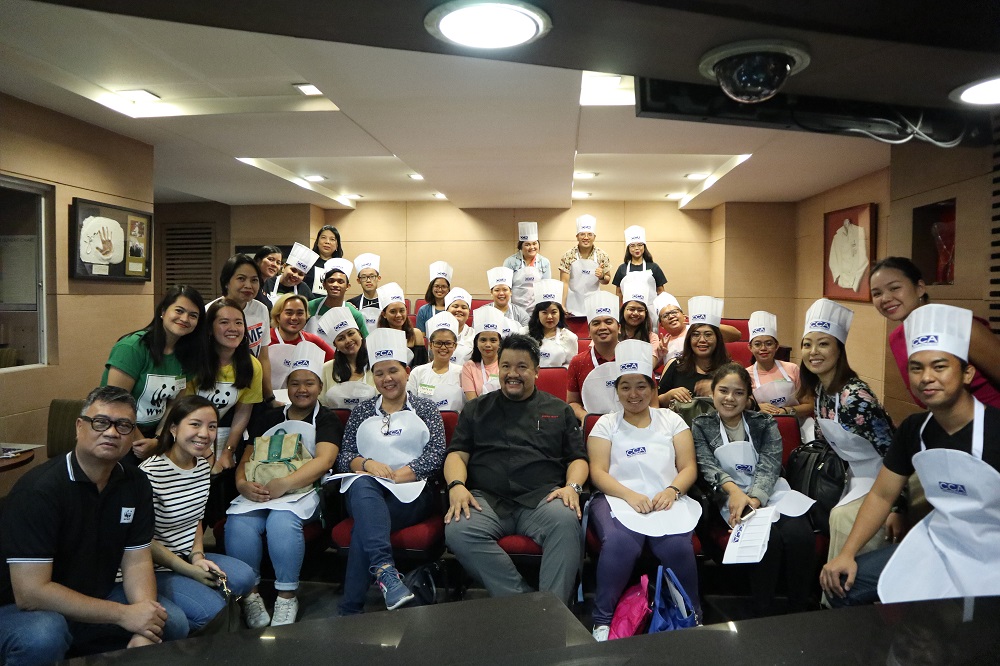
Watching chefs in action was truly exciting but nothing beats practical experience when it comes to learning new concepts. That is why after the demonstration, participants were asked to group themselves for their very own cooking experience. They were assigned their own kitchen stations and guided by student chefs from CCA Manila as they tried to replicate three of the dishes using provided local ingredients. The Master Chef-style activity culminated with judges checking each group’s dishes based on their taste and plating. During lunch, everyone was able to enjoy the dishes they cooked.
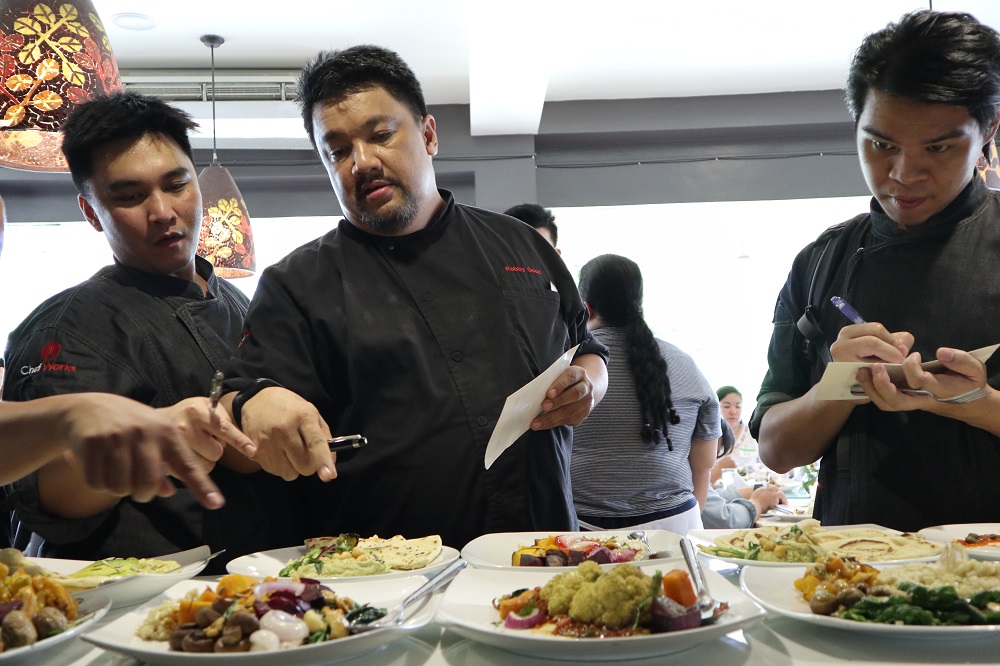
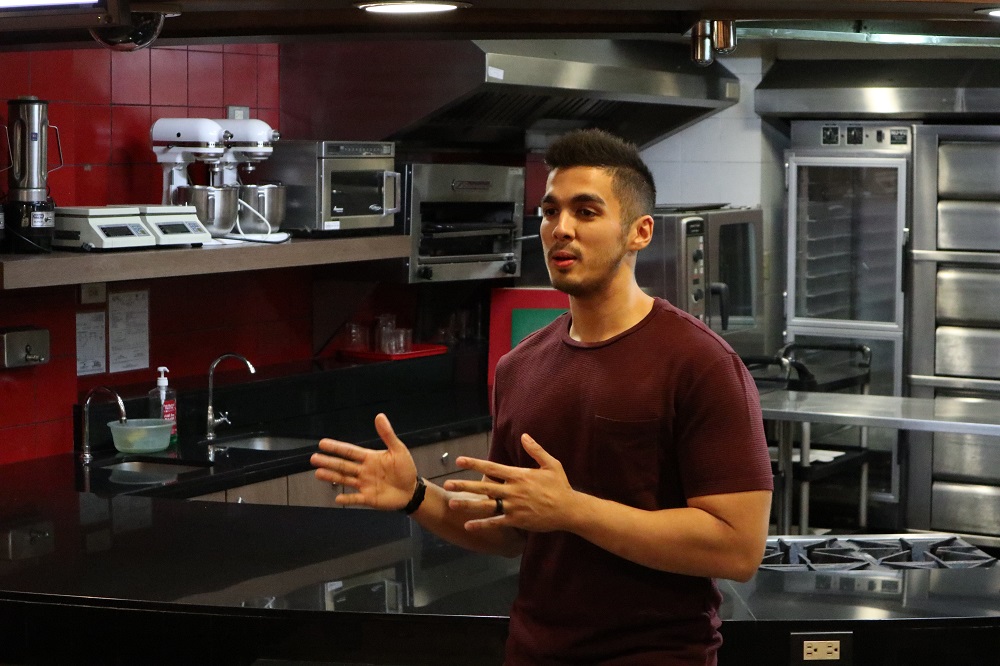
The participants were also introduced to the concept of Green Chefsmanship through a talk conducted by Chef James Torres. He emphasized the importance of integrating zero waste principles in cooking and encouraged everyone to use every part of the ingredients they have to ensure that no food goes to waste. “I grew up in our ancestral house in Zambales, where, back at the time, there were no garbage collectors because every family there tries to utilize everything. I was not really a fan of the practice back then,” says Torres.
“But what changed my perspective was when I went back to my province and to see one of our top beaches teeming with trash. We could not even step on the shore because of the trash because visitors do not practice proper waste disposal. This experience changed my perspective on sustainability, and so when I entered CCA wanting to become a chef and own a restaurant, I knew that through Green Chefsmanship I would be able to not just fulfill my dreams but also do it in a way that takes account of our environment’s health.”
By exposing Filipino diners to the different processes involved in restaurant operations such as menu planning and development, cooking using local ingredients, and reducing food waste by taking their leftovers at home, WWF-Philippines hopes to instill in them the discipline of making eco-friendly choices whenever they eat and dine out, which they can start through home cooking. The Sustainable Diner project believes that every good habit starts at home, and that diners have the power to bring back the value of food.
“For the longest time, our planet has been supplying for our unlimited demand. But we must remember that our planet is not just here for mankind’s disposal”,’ says Melo-Rijk. “As diners, your greatest power is your freedom of choice – and you can use that to help protect our planet and to bring back its value through your plates. Every plate is a vote towards the kind of world you want to live in, and the kind of world you want to leave behind to future generations.”
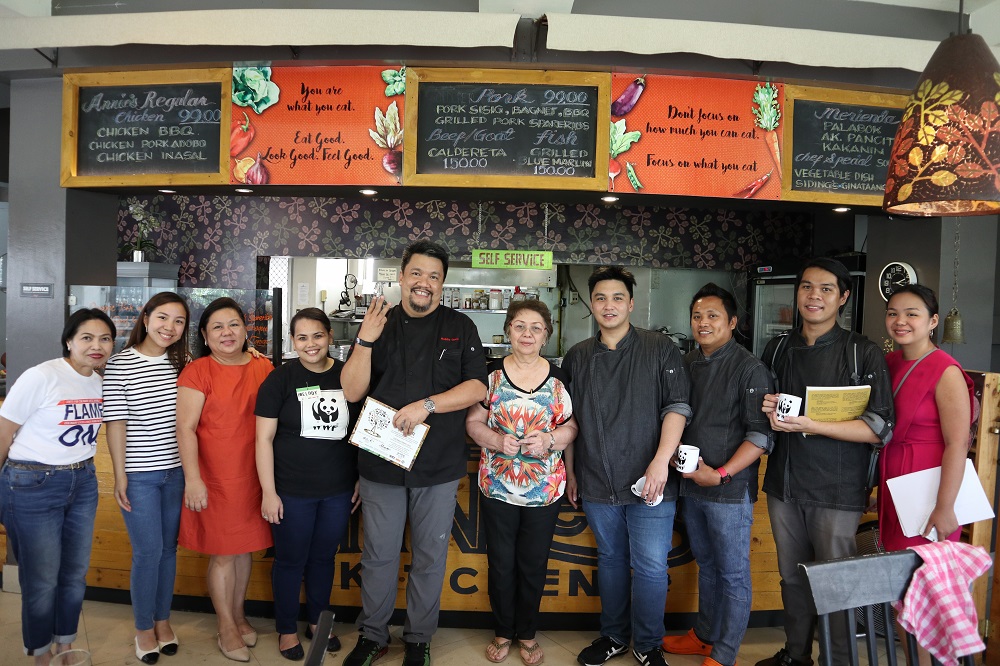
The Sustainable Diner project, under WWF-Philippines’ Sustainable Consumption and Production, is part of the International Climate Initiative (IKI). The Federal Ministry for the Environment, Nature Conservation, Building and Nuclear Safety (BMUB) supports this initiative on the basis of a decision adopted by the German Bundestag.
